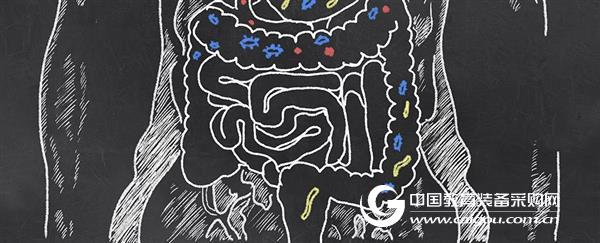
Intestinal microorganisms are a very popular area of ​​research in recent years. Recent studies have shown that they can affect human health, behavior and certain neurological diseases such as autism. But how do they communicate with the brain? A new study from the University of Illinois showed that there is a communication pathway between certain intestinal bacteria and brain metabolites through a blood called cortisol. Compounds to achieve. Surprisingly, this finding provides a potential mechanism for explaining the characteristics of autism. The study was recently published on Gut Microbes.
“In infancy, changes in neurometabolism have a profound effect on brain development, and microbes or the collection of bacteria, fungi, and viruses residing in our intestines play an important role in this process.†Neuroscience Program, University of Illinois Doctoral student Austin Mudd said. "However, it is unclear which specific gut bacteria have the strongest influence on brain development and which factors may affect the relationship between gut and brain."
Researchers studied 1-month-old piglets that were very similar to human infants' intestinal and brain development. The researchers first determined the relative abundance of bacteria in the pig's feces and ascending colon contents, and then measured the concentration of certain compounds in the blood and brain.
Mudd said: "Piglet as an animal model to replace human infants provides a unique opportunity to study all aspects of development, because collecting data on human infants is often more difficult or ethically challenging. For example, in this In this study, we wanted to see if we could find bacteria in pig feces that could predict the concentration of compounds in the blood and brain, both of which are difficult for babies to perform.â€
Relationship between intestinal microbial abundance and brain metabolite concentration
Researchers first identified a predictive relationship between fecal bacteria and brain metabolites. They found that both Bacteroides (Bacteroides) and Clostridium (Clostridium) are predictive of high concentrations of inositol, Butyricimonas can predict N-acetylaspartate (NAA) levels, and Bacteroides can also predict total creatine in the brain Level. In addition, when the Ruminococcus content is more abundant in the pig manure, the content of NAA in the brain is lower.
"It has been found that these brain metabolites are altered in individuals diagnosed with an autism spectrum disorder (ASD), but no previous studies have found a unique link between the genus and these specific metabolites," said Mudd.
Two gut microbiota related to serotonin and cortisol concentrations
The next step is to determine whether the four bacteria can predict the compounds in the blood. “Blood biomarkers are clinically relevant samples that can be collected from infants. It is of course better to study infant brains directly, but it is difficult for children to image them logically and ethically. However, we can obtain feces from infants. And blood," said Ryan Dilger, an associate professor of animal science at the University of Illinois.
The researchers found a predictive relationship between the fecal microbiome and serotonin and cortisol. Specifically, Bacteroides is associated with higher serotonin levels, while Ruminococcus predicts lower concentrations of serotonin and cortisol. Clostridium and Butyricimonas are not closely related to any one compound.
Mudd said the results support previous findings related to ASD. "Changes in serotonin and cortisol in the serum, as well as fecal levels of Bacteroides and Ruminococcus, are mentioned in ASD individuals."
Ruminococcus communicates with the brain through Cortisol
Based on their initial analysis, the researchers wanted to know if there was a relationship between Ruminococcus, cortisol, and NAA. They used a statistical method called Mediation Analysis and found that serum cortisol mediates the relationship between fecal Ruminococcus abundance and brain NAA concentration. In other words, Ruminococcus seems to be indirectly interacting with the brain through cortisol and making changes.
Mudd said: "Initially, we studied the relationship between the gut microbiota, blood biomarkers, and brain metabolites. But when we looked at the investigation of the identified associations, the study led us to the reported autism. The disease literature. We are cautious and do not want to exaggerate our findings without the support of clinical intervention trials, but we speculate that this may be a contributing factor to the heterogeneity of autism symptoms."
Shanghai Genesis technology excellence, interleukin cytokines, fetal bovine serum, electrophoresis equipment, scientific equipment, raw material drug standards, chemical reagents, cell culture consumables, Shanghai, a large number of special promotions, welcome to inquire!
Silicone Foldable Water Bottle
Silicone Foldable Water Bottle is made of food grade silica gel, safe, environment-friendly, non-toxic and healthy, long service life and light weight.
It can be folded to reduce the volume, so that you can carry more other things when you travel. The operation is also very simple. It can be folded and expanded easily by pushing and pulling.
Silicone Foldable Water Bottle,Solid Color Silicone Bottle,Foldable Sports Drinking Bottle,Silicone Outdoor Sport Water Bottle
Ningbo Auland International Co.,Ltd. , https://www.everwinbottle.com
